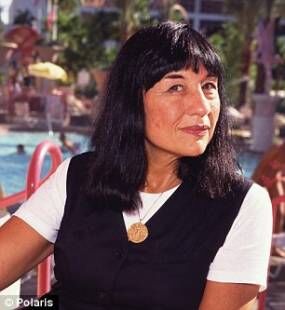Friends
Why One L.A. Victim Stood By Suspected Killer Robert Durst
A psychotherapist weighs in on people like Susan Berman shielding Robert Durst.
Posted July 31, 2021 Reviewed by Tyler Woods
Key points
- Mob daughter Susan Berman was killed because she knew too much, prosecutors say.
- A friendship with a possible psychopath leads to helping the accused perpetrator get away for decades with murder.
As the Los Angeles trial of former real estate mogul Robert Durst continues in the slaying of Durst's best friend Susan Berman, one question begs asking: Despite Berman telling friends she believed Durst killed his first wife, she stood by him. But why?

The death of Susan Berman in the winter of 2000 had all the earmarks of a professional hit aimed at a person born into the Mafia. Or was that just what the killer intended everyone to think, to lead investigators to the assumption that it was a mob hit when it was not? Or was it her best friend Robert Durst who wanted her dead?
Los Angeles prosecutors contend Susan Berman knew too much and Durst killed her to prevent her from speaking with police about the 1982 disappearance of his wife, Kathleen McCormack Durst.
How could Berman have trusted someone she knew who may have killed his own wife? The answer is complicated. Berman, a journalist and scriptwriter, kept people in the film and literary worlds around her, those in influential positions who could help her in her own career. She also counted on Durst for friendship, for status, and occasionally for money.
Berman, the only child of Las Vegas mob and casino boss Davie Berman, an ex-con once wanted for murder and who served time in Sing Sing Correctional Facility for kidnapping, had much in common with Durst. Both were heirs to fortunes, although Berman squandered her $5.25 million payout and at the time of her death was penniless. Durst, on the other hand, heir to the Durst Organization's fortune, sued in 2006 for control of his share of the family's trust. The family eventually bought out Durst's share for $65 million. With or without his fortunes, Berman had an undying loyalty to the man she called “Bobby.”
Berman met Durst during her last year at the University of California, Los Angeles, where she did her undergraduate work. They both learned that their mothers had committed suicide while Berman and Durst were young children. She told friends she was attracted to Durst's quiet charm and because he matched her quick wit, plus they had much in common. They became fast platonic friends and almost immediately each other’s confidant. When Durst returned to New York after dropping out of graduate school, Berman, after getting her master's degree in journalism from UC Berkeley, followed Durst to Manhattan and went to work for New York magazine.
Then, after Durst's wife's disappearance, Durst called on his best friend Susan Berman, herself a member of the working press, to address the media. On behalf of Durst, Berman told reporters, "He’s completely distraught and is clinging to the hope that Kathie is alive,” she told the New York Post at the time. “He loves her very much and he’s terribly worried.”
Berman, the closest person to Durst at the time of his wife's disappearance, was also believed to have called Kathleen Durst's medical school, identifying herself as Kathleen and telling the dean that she was too ill to be in school. By the year 2000, New York State police reopened Kathleen Durst's missing-person case and sought out Berman for what she knew about that phone call. Once the push to interview Berman was reported in the media, Robert Durst disappeared, taking on a false identity. By December 2000, Susan Berman was found dead in her rented Benedict Canyon home from a single gunshot wound to the back of her head, execution-style.
“I think it was Susan Berman who made that call (to the dean),” Kathleen Durst’s friend, Ellen Strauss, told 48 Hours. “I think that’s why Susan Berman was killed. Once the story broke about the case re-opening, I think Bob was trying to mop up all the loose ends.”
Could Berman have accepted that Durst was a killer, having done the same with her father? She often proudly quoted a passage in a book about her dad, that he "could kill a man with one hand behind his back."
To the bitter end, Susan Berman continued protecting Durst. But why? Generally speaking, according to Gina Simmons Schneider, a psychotherapist, "A person raised by a psychopath likely witnessed examples of cheating, exploiting others, aggressiveness, entitlement, inappropriate boundaries, and a lack of empathy for the suffering of others. These behaviors become normalized over time in a family."
Berman witnessed the slipping away of her mother Gladys, who suffered for years from depression because of the dangers associated with her mobster husband, taking to her bed for days, while her father, a known killer and mob boss, lived a dangerous life. He often skirted his family to Los Angeles for days at a time to avoid mob violence in Las Vegas, where they lived. Durst, Susan told friends, was fascinated by that side of her father's life.
"Studies also show that psychopaths tend to find those same traits attractive in others," Simmons Schneider explained. "Cheating, manipulation, impulsivity, using people to get ahead, feeling entitled to special treatment all seem normal when that’s how your family operates. Someone raised by a psychopath would likely have a predisposition to be attracted to people with those traits."
Further, Simmons Schneider noted, "Psychopaths do not have normal fear responses to dangerous people and situations, due to shrinkage of the amygdala, the threat sensing part of the brain. Those with primary psychopathy are born with brain abnormalities. They do not respond with a stress reaction to punishment or threats of punishment. Primary psychopaths have low levels of anxiety and limited emotional expressions. Their criminal acts serve a specific need they might have at the moment."
Susan Berman, authorities have said, was duped by best friend Durst's seemingly steady behavior and reactions, while protecting him against accusations that he killed his wife. Once police publicly stated they wanted to question Berman about Kathleen Durst's disappearance, did Durst commit the ultimate crime by getting Berman out of the way? Prosecutors think so.
“The evidence is going to show without question that Susan knew her killer," Deputy District Attorney John Lewin told the court, according to News 12 The Bronx. “She was unafraid. She wasn't scared. And then she was executed.”
The trial of the State of California versus Robert Durst in the murder of Susan Berman continues in Los Angeles Superior Court despite starts and stops because of the COVID-19 lockdown and Durst's declining health.
References
Scott, Cathy (2015). Murder of a Mafia Daughter. Fort Lee, N.J.: Barricade Books.




